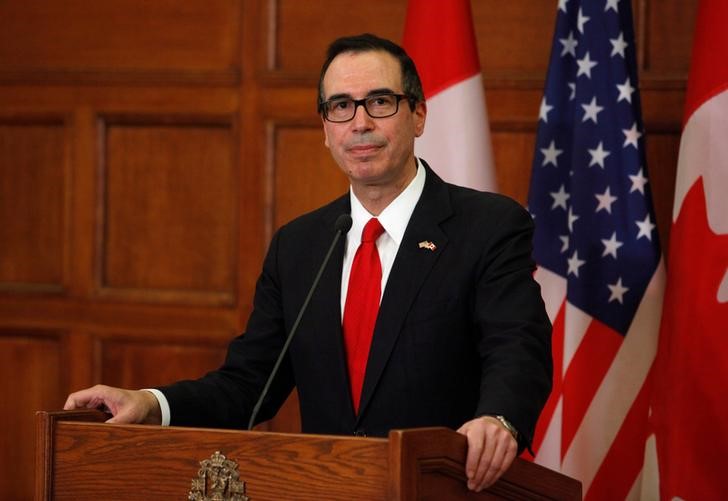By David Lawder
WASHINGTON (Reuters) - U.S. Treasury Secretary Steven Mnuchin and Commerce Secretary Wilbur Ross said on Tuesday they would be looking for specific agreements from Beijing this week to increase U.S. access to China's growing consumer markets.
At a business lunch before the start of bilateral economic talks in Washington, Mnuchin said he hoped China would lift foreign ownership restrictions in its financial services sector to allow more U.S. participation, and remove barriers to trade in its information and communication technology sector.
"My hope is that we can increase our focus on concrete and targeted commitments to address both short-term and long-term strategic challenges," Mnuchin said.
Ross said some initial deals announced in April, as part of a 100-day economic plan aimed at reducing the U.S. trade deficit with China, were a "good start." These include the sale of U.S. beef in China for the first time in 14 years.
The dialogue has become more challenging as U.S. and Chinese officials grapple with larger and more sensitive issues, Ross said. "Our objective, however, will continue to be specific deliverables by specific dates so that everyone on both sides can measure the results on a continuing basis."
The annual bilateral negotiating session, launched in 2006 and rebranded this year as the "U.S.-China Comprehensive Economic Dialogue," will formally take place on Wednesday.
Chinese Vice-Premier Wang Yang told the luncheon of largely U.S. business executives with China ties that Beijing had its own concerns to be addressed in the talks, including "outdated" U.S. export controls for high-technology products.
According to a translated text of his remarks, Wang said allowing such sales to China would help reduce the U.S. trade deficit, noting that China imported $227 billion worth of integrated circuits last year, but only 4 percent of that came from the United States.
He added that the United States and China had no choice but to cooperate economically even if they wanted to buy and hire locally.

"It is important that both sides come to realize with cool heads that given the depth of our business cooperation, neither Chinese nor Americans can do without the other country," Wang added.